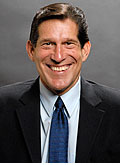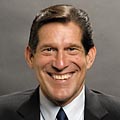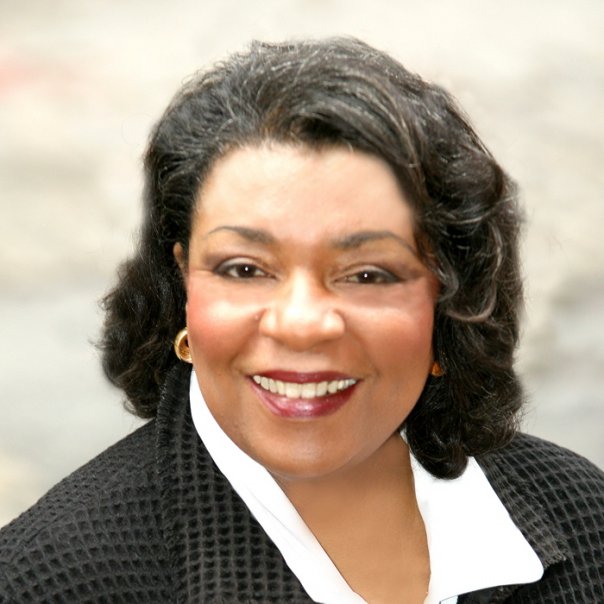This is the third part of an interview with Landmark Forum leader David Cunningham about health and well-being with Dr. Steve Wechler of WSYR Radio.
 Dr. Steve Wechsler: Well, welcome back to Nutritional Insights. This is Dr. Steve Wechsler. My guest today, David Cunningham, a communication expert and seminar leader for Landmark Education. Over 1.2 million people have been through their programs. And we have David on today talking about junk talk causing weight gain. Hi, David.
Dr. Steve Wechsler: Well, welcome back to Nutritional Insights. This is Dr. Steve Wechsler. My guest today, David Cunningham, a communication expert and seminar leader for Landmark Education. Over 1.2 million people have been through their programs. And we have David on today talking about junk talk causing weight gain. Hi, David.
David Cunningham: Hi, Steve. Good to be back with you.
Dr. Steve Wechsler: Great. So let’s wrap up a few of those points that we spoke about for people who might have just tuned in. You know, we’re talking about how conversations – how they affect the way we eat, the way we exercise, the way we take care of our health. And then you gave a few examples of what people could do.
David Cunningham: Uh huh. A couple things, again, to pay attention to is the self talk we have. We call it junk talk. Just like junk food, there’s junk talk. And what are the things that we say to ourselves, the decisions that we’ve made, like, “I’m too old for that,” for example, that really disempower us in any new commitment that we have. You know, Steve, my mom’s 84 years old, right? And for the first time ever, she went for her first massage and rolfing session, and she just had never had that before in her life. And, you know, for the first couple times I mentioned it, what she said to me is, “I’m too old for that.” Right? But then, after a couple times, she said, “Okay, I’ll try it.” And now she loves it. The thing she said to me when she came back is, “Okay,” she goes, “Now you’re gonna have to support me in how to do this every couple weeks,” because she loved it so much.
Dr. Steve Wechsler: That’s fantastic.
David Cunningham: It is, isn’t it?
Dr. Steve Wechsler: And, again, at any age, we can change our minds. I took care of in my practice so many older, healthy 60, 70, 80, 90-year-old people because their mindset has been on that for so long. But then I’ll have some people who’ll come and they’re very unhealthy at that age. Those who change their mindset to do things differently in their lives – actually to be something different in their life – to be a healthy person, rather than just do healthy things.
David Cunningham: And that’s what’s really important – to be in communication with other people, isn’t it? So anybody that comes in to talk to you, they can hear something that they haven’t been saying to themselves. When I include other people in what I’m committed to, even what I’m failing at, because sometimes the last thing we want to talk about is something we’re failing at – if we’re failing at a diet or failing to exercise, it’s the last thing we want to talk about. But if we include other people that’s when we can get new ideas, new support, new encouragement, and literally start thinking some new things, is when we are courageous enough to include other people, and I know that takes courage, but it’s really important.
Dr. Steve Wechsler: So we’re gonna have a few other guests here. We have MaryKay Mullally, a life coach whose passion is wellness, nutrition, and weight management. MaryKay has run five marathons since turning 40 years old, even the Boston Marathon. She founded Step Up For Life, a beginners’ half marathon training program to empower women. Good morning, Mary.
MaryKay: Good morning, Steve.
Dr. Steve Wechsler: Thank you so much for being on today. So where were you at before you started running these marathons?
MaryKay: Well, Steve, I had a successful career in technology. I was a supermom, and at that point I’d run three marathons and three half-marathons, and seemingly had it all. You know? I was in the best physical shape of my life but I also had an emotional void, and what I didn’t know is that I was unconsciously and unknowingly trying to fill that void through my physical accomplishments.
And it was really at that time that I started to examine the future that I had, and it certainly wasn’t my certain future but it was the likely one that I thought I had, and I didn’t like what I saw. You know, what I saw was that my son and daughter would soon be out of the nest, and I’d be shuffling papers and dealing with office politics as some high-tech executive, and I wanted to have more. You know, in my world at that time I thought back to those disempowering conversations that there was nothing else I could do. I was trained in technology and what could I do? What change could I make that would fulfill me more than what I had? What was happening for me is – and I saw – well, I’m just gonna have to keep doing things, and accomplishing things to somehow feel worthy and valuable.
Dr. Steve Wechsler: So a lot of people have that in life where they have it seemingly all. Like, people look at your life and go, “Wow. You got all of this going on.” But there’s that empty part that we feel. Now, what made you look further into this, and where did you look?
MaryKay: Well, what made me look further into it was just looking down the road and wondering, “Was this it? Was this what my life was going to be? And was this what my life was for?” And I thought, “Man! This can’t be it.” And so those questions ultimately led me to do the Landmark Forum and not only did I get those questions answered but I learned more about myself in that one weekend than I had in 43 years at that point.
Dr. Steve Wechsler: Yeah. You had more answers to your questions.
MaryKay: Oh, for sure.
Dr. Steve Wechsler: Because so many of us are looking for the answer but then we realize that there are more questions we could be asking.
MaryKay: Absolutely.
Dr. Steve Wechsler: And then you started this program to help other people.
MaryKay: That’s right. You know, it was at that point that I realized – I discovered my passion for health, and wanting to share with people the journey I had been through to accomplish the things that I had and running the marathons and all that had really transformed my life physically. So what happened from there was I made some new commitments. I actually quit my job but I also negotiated a higher paying contract job with more flexible hours and that was the point where I was inspired to found my company Step Up For Life, and I started that as a half marathon training program to empower women.
Dr. Steve Wechsler: And what’s the different conversation now? Now. Why do you run now? Why do you compete now?
MaryKay: You know, I wake up every day thinking about my exercise and what I’m gonna do that day to make me feel good. And why I run and why I exercise is because I want to feel good. And I know that when I do those things, when I take care of myself, I feel good, and when I feel good, I can do anything.
Dr. Steve Wechsler: Beautiful. Great. Thank you so much, Mary. I appreciate you being on.
MaryKay: You are welcome. Thank you for having me.
Dr. Steve Wechsler: Great. So, David, let’s talk a little about this. Some people are just – they get fanatical about being healthful, and that’s not really so healthy.
David Cunningham: Well, I think so, and I think the thing that MaryKay so beautifully said was how that – what she was so driven – you said fanatical or driven by it – is often that we’re driven by it for some reason that really isn’t health-oriented. We’re driven by it to fill some void or we’re driven to exercise or to look good versus really be healthy and being happy as a human being, and I think what MaryKay said is so brilliant. Because what shapes us right now, Steve, is the future that we see for ourselves, and when you see a future for yourself that you don’t love, it disempowers you right now. When you can see a future for yourself that inspires you, even though it’s a future, guess when it gives you power? It gives you power right now.
So I think that’s another key point that MaryKay made which is that to be able to see a future for ourselves where a future of health, a future of contribution – that our health makes a difference for our families, our health gives us a chance to contribute to our friends, our health just lets us be happier people with other people. So when we can see a future for ourselves that makes a difference, it really gives us power right away.
Dr. Steve Wechsler: Yeah. That service to others shows us how much more energy we have. I always say to people, you know, you start serving from where your cup runs over. Because so many people try to give from half a cup or a quarter of a cup because they’re supposed to be giving, but when you really give when your cup is running over, when you’re really in that full expression kind of place, then giving is – it’s beautiful, it’s healthy, it’s happy, and you’re giving from a place of fullness.
David Cunningham: Yeah. It actually is natural at that point.
Dr. Steve Wechsler: Exactly.
David Cunningham: It’s a very natural expression to contribute to others.
Read the final part of the interview.




2 comments
Wow.
So inspiring.
Thank you so much
These articles are awesome! I love to read David’s dictation. Can’t wait for the final interview.